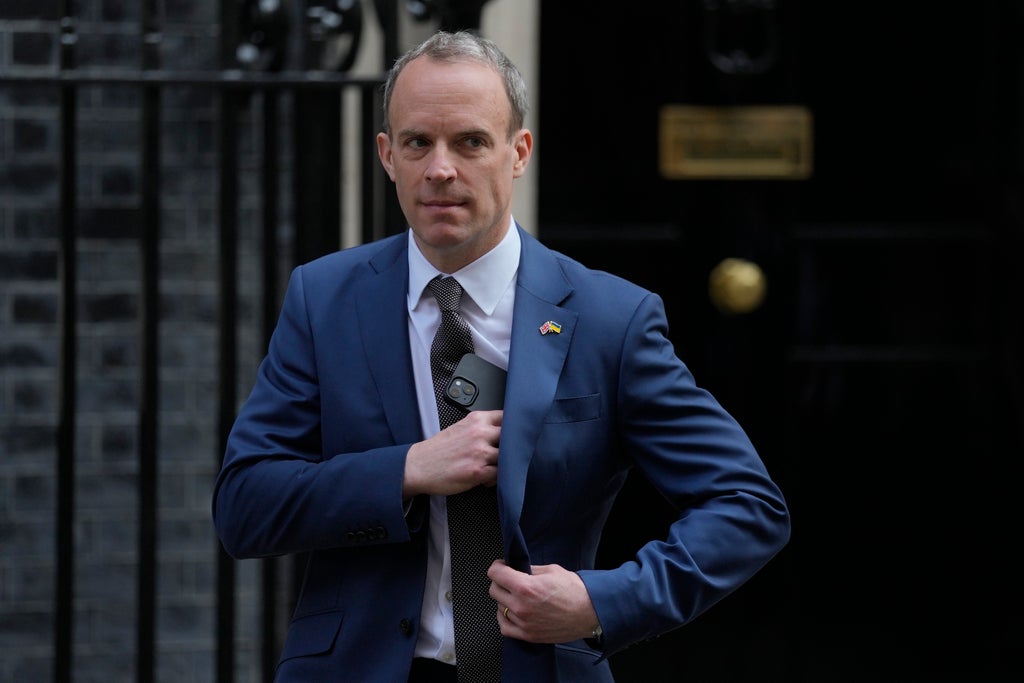
The overhaul of the Human Rights Act has been branded “racist” over a plan to strip protections from people who have been targeted by stop and search and immigration laws.
The alarm is being raised over Dominic Raab’s plan for past “conduct” to be taken into account when claims are brought for rights violations, with a warning it will disproportionately hit ethnic minority groups.
These groups are far more likely to be stopped by the police or questioned over their immigration status, and therefore arrested, fined or detained, the campaign group Liberty said.
Most of the names kept on the Gangs Violence Matrix, a Metropolitan Police database, are those of young black men.
Now Liberty is demanding a rethink as ministers prepare to plough ahead with watering down the landmark 1998 Act through a Bill in next month’s Queen’s Speech.
“Migrants, prisoners and people with historic ‘poor conduct’ won’t get the same rights as those with citizenship, or without a criminal record, which will have racist impacts”, Martha Spurrier, the organisation’s director, told The Independent.
“It will put over-policed communities at risk of losing their rights – even though these are the groups most likely to face a human rights violation by the state.”
The warning comes as Liberty warns the shake-up is far more draconian than expected, something obscured in recent months by public focus on Covid, Partygate and the Ukraine war.
Injustices such as the Hillsborough tragedy and the failure to investigate ‘black cab rapist’ John Worboys may have never been exposed if the curbs were already in place, it fears.
The crackdown will also block attempts to enforce human rights even before they reach a courtroom, despite “terrible abuses” being revealed only once a legal case starts.
Mr Raab has claimed his plans will protect free speech from “wokery and political correctness” – but campaigners believe that is a smokescreen masking “a full-on assault” on human rights, through:
* Curbs on ‘positive obligations’, requiring the state to take proactive steps to protect rights – the mechanism that delivered justice in the Hillsborough and Worboys cases.
* A ‘permission stage’ – that would shut down claims at the start without proof of “significant disadvantage”.
* The plan to take into account ‘the conduct of claimants’ – even actions many years in the past, with no link to alleged mistreatment by a public authority.
Ms Spurrier added: “The Conservative Party said it would “update” the Human Rights Act, but the proposals brought forward go far beyond an update and are much worse than we feared.
“They constitute nothing less than a full-on assault on our rights – creating a two-tier system where only some people are deserving of rights and making it much harder for people who have had their rights breached to get justice.”
The criticisms come after Amnesty International accused ministers of the danger of “aligning themselves with authoritarian regimes around the world” by watering down the Human Rights Act.
The Law Society has warned of the damage to “the UK’s reputation as a committed member of the international community of rights-respecting nations”.
Fears were raised from the moment Mr Raab – who was recorded, in 2009, saying: “I don’t support the Human Rights Act” – was handed the justice brief in his cabinet demotion last September.
A few weeks later, he was attacked for misrepresenting the case of “a drug dealer convicted of beating his ex-partner” to claim the Act was being abused.
Mr Raab argues that creating a British Bill of Rights will wrestle back “parliament’s role as the ultimate decision-maker” from the European Court of Human Rights in Strasbourg.
It will be easier to deport asylum seekers claiming the right to a family life to stay in the UK – but a threat to withdraw from the ECHR altogether has been dropped.
The Ministry of Justice declined to respond to the criticisms, but argued the overhaul will “strengthen essential rights, particularly freedom of expression, while preventing abuses and giving judges the flexibility and powers they need”.







